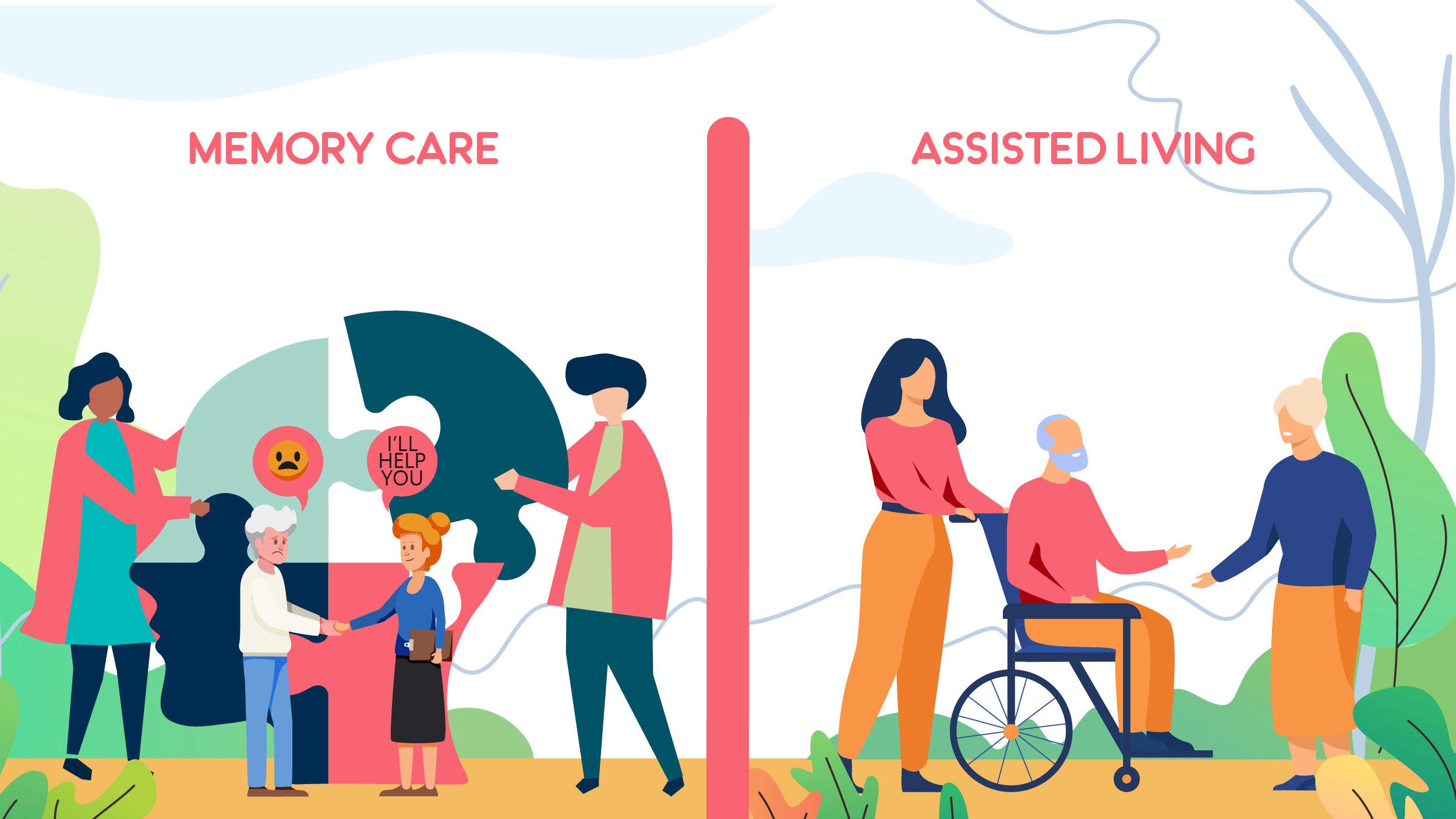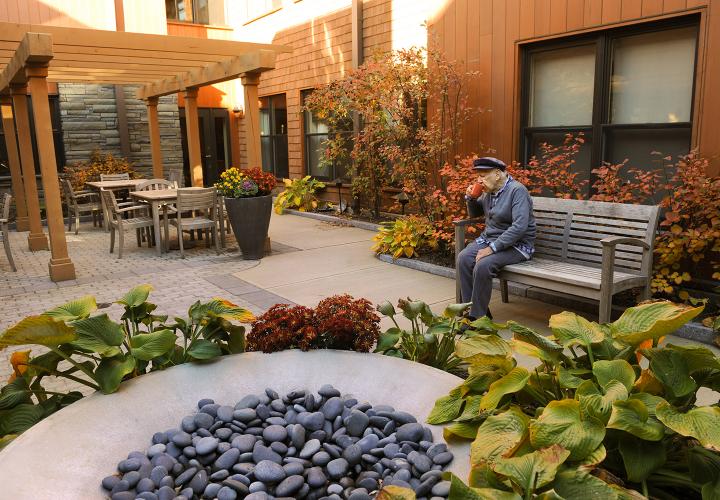Advanced Memory Support Solutions Offered with Alzheimers Care Charlotte
Advanced Memory Support Solutions Offered with Alzheimers Care Charlotte
Blog Article
Producing a Safe and Supportive Setting for Alzheimer's Care
The production of a helpful and safe atmosphere for people with Alzheimer's is vital in enhancing their top quality of life. This involves not just physical adaptations within the home, such as lessening hazards and including familiar components, yet likewise the execution of structured regimens and meaningful activities that provide to their cognitive needs. Understanding the psychological and emotional measurements of treatment can significantly affect their feeling of protection and connection. Exploring these diverse strategies can reveal vital understandings right into reliable caregiving strategies that may transform the everyday experiences of both people and caretakers.
Understanding Alzheimer's Needs
Frequently, people with Alzheimer's condition exhibit a range of demands that call for tailored methods to care. As the condition progresses, cognitive decline materializes in different methods, impacting memory, thinking, and also the capability to do everyday activities. Caretakers have to identify these progressing requirements to offer appropriate assistance and make sure a better of life for those affected.
One critical facet of recognizing Alzheimer's requirements is recognizing the relevance of regular and familiarity. People commonly discover comfort in well-known patterns, which can decrease anxiety and complication. Caregivers need to aim to create organized daily timetables that integrate meaningful tasks aligned with the individual's interests and capacities.
Furthermore, effective communication is paramount. People with Alzheimer's may have a hard time to share themselves or comprehend complicated language. Caretakers ought to use easy, clear language, usage non-verbal cues, and method active listening to cultivate understanding and connection.
Last but not least, social and psychological needs can not be neglected. Giving opportunities for social communication and keeping relationships can dramatically enhance emotional health. Caretakers ought to motivate involvement in community activities or family members celebrations, promoting a sense of belonging and function. Recognizing these diverse requirements is essential for developing a helpful care atmosphere.
Creating a Safe Home
Developing a secure home for individuals with Alzheimer's disease is important to advertising and decreasing dangers self-reliance. The design of the space should focus on safety and security while enabling personal comfort. Initially, get rid of prospective risks such as loosened carpets, sharp items, and clutter, which can bring about drops or mishaps. Ensure that paths are clear and well-lit, as proper lighting decreases disorientation and enhances flexibility.
Including adaptive attributes is also critical. Set up grab bars in washrooms and near stairways, and take into consideration using non-slip floor coverings in wet areas. In addition, utilizing different shades for walls and floorings can aid in differentiating areas, assisting to reduce confusion.
Knowledge is essential for people with Alzheimer's. Personalizing the environment with acquainted objects and photos can enhance a sense of belonging and safety - Alzheimers Care Charlotte. It is additionally useful to have actually a designated area for everyday tasks, such as reading or crafting, which can provide structure to their day
Last but not least, implementing a protected outside room permits safe exploration while linking with nature. By attentively making the home environment, caregivers can considerably improve the top quality of life for people coping with Alzheimer's condition.
Enhancing Interaction Abilities

Non-verbal communication, including face expressions, gestures, and touch, plays an essential role in sharing empathy and understanding. Maintaining eye call and a calm disposition can enhance the convenience level of the person, promoting a sense of safety and security.
Furthermore, it is essential to exercise active listening. This entails being completely present, revealing patience, and permitting the person to share themselves without disturbance. Repeating might be necessary; caregivers need to be prepared to review inquiries or topics, as people with Alzheimer's may have problem with memory recall.
Furthermore, making use of visual help or cues, such as pictures or familiar items, can facilitate recognition and involvement. Eventually, boosting communication abilities is about constructing trust fund and producing a setting where individuals feel listened to, valued, and understood, thus improving their quality of life.
Motivating Social Communication
Fostering significant social communications can significantly boost the health of individuals with Alzheimer's illness. Involving with others not just helps battle sensations of seclusion but additionally boosts cognitive function and emotional wellness. Structured social tasks, such as group crafts, arts and games, or music therapy, produce possibilities for homeowners to get in touch with peers and caregivers, which can result in enhanced mood and minimized anxiousness.
Developing an inviting environment that encourages socialization is necessary. This can be attained by arranging communal spaces that facilitate interaction, such as cozy seating areas or activity areas. Additionally, including acquainted and culturally pertinent tasks can stimulate memories and motivate participation, allowing people with Alzheimer's to really feel more connected to their previous experiences.
Moreover, caretakers must be trained to identify and promote social involvement amongst residents. By focusing on social interaction, we can dramatically enhance the lives of those living with Alzheimer's, fostering a feeling of community and belonging.
Sustaining Caregiver Health

To sustain caretakers, companies should provide routine training and instructional sources to enhance their understanding of Alzheimer's disease and caregiving techniques. Offering accessibility to reprieve treatment solutions permits caretakers to take necessary breaks, decreasing tension and tiredness - Alzheimers Care Charlotte. Furthermore, cultivating a community through support groups can help with emotional sharing and the exchange of useful guidance among caregivers, creating a network of mutual assistance
Psychological health resources, such as therapy solutions, can likewise be crucial in resolving the psychological toll caregiving can take. By focusing on caretaker wellness, explanation we produce a more sustainable caregiving setting that not just profits the caregivers themselves but also improves the general quality of care obtained by people with Alzheimer's. Eventually, supporting caregivers is a necessary element in promoting a compassionate and effective care setting.
Verdict
Finally, the development of a encouraging and risk-free environment for people with Alzheimer's is important to improving their quality of life. By focusing on security through thoughtful layout, promoting emotional health with familiar components, and promoting engagement via structured routines, caretakers can substantially impact the total experience of those affected by this problem. Furthermore, supporting caregiver well-being is vital, as it ultimately adds to a more reliable and compassionate treatment environment.
Repetition may be essential; caregivers must be prepared to take another look at questions or topics, as people with Alzheimer's might struggle with memory recall.

Report this page